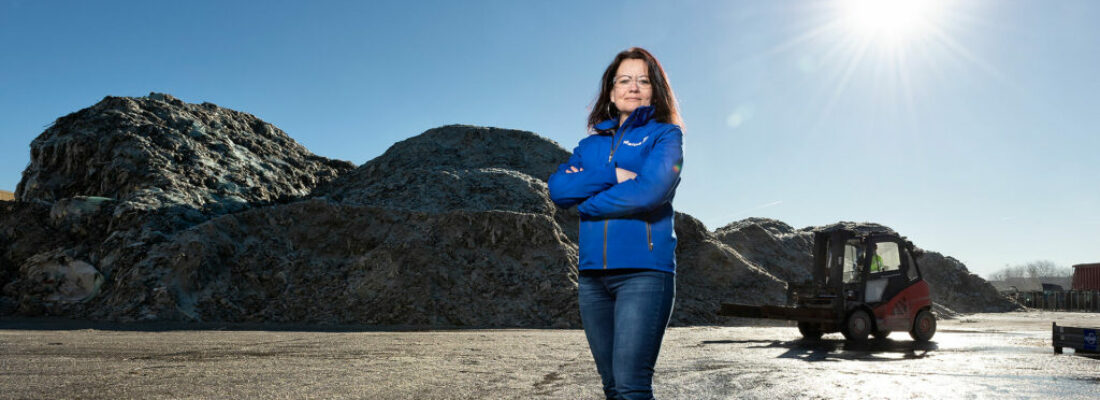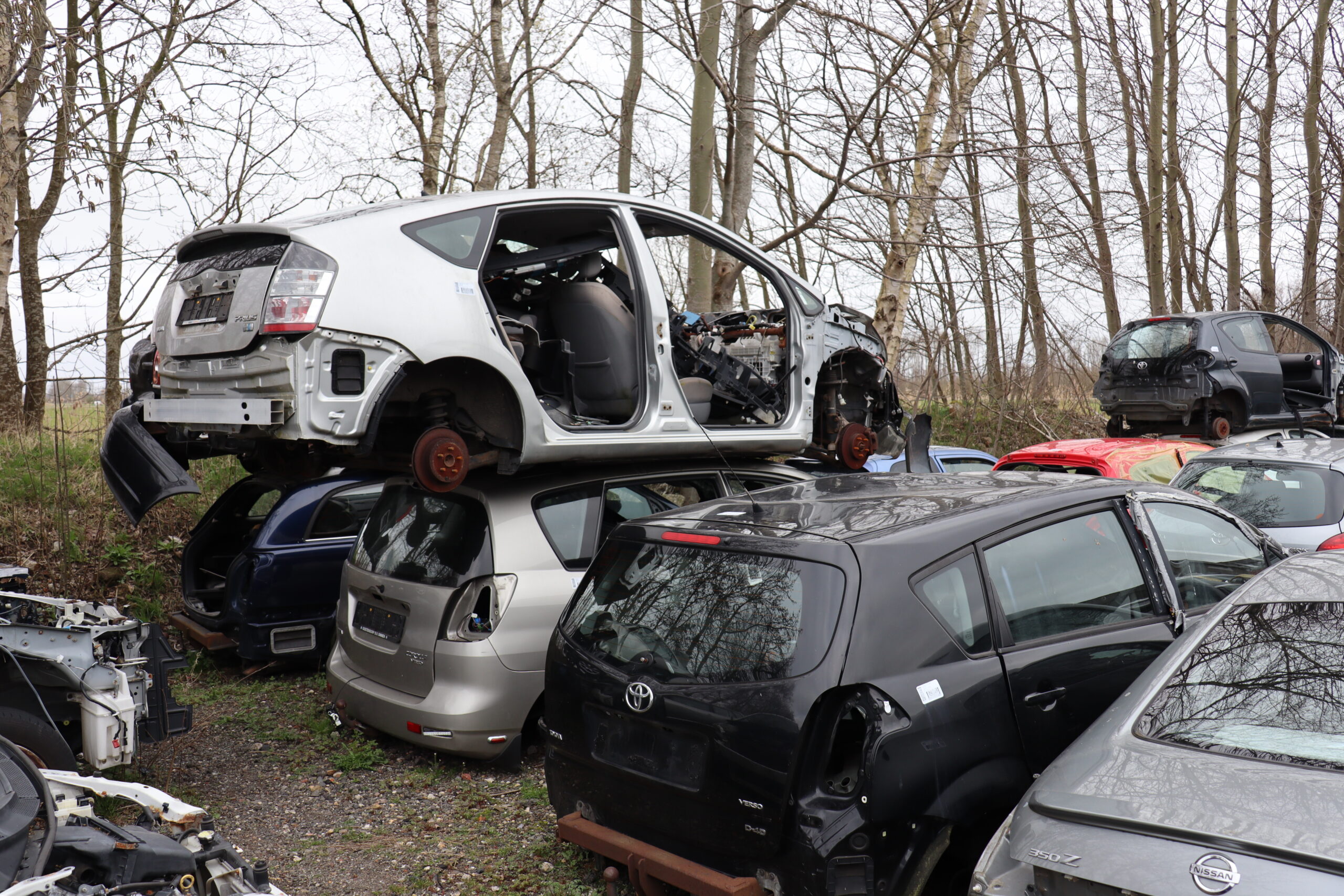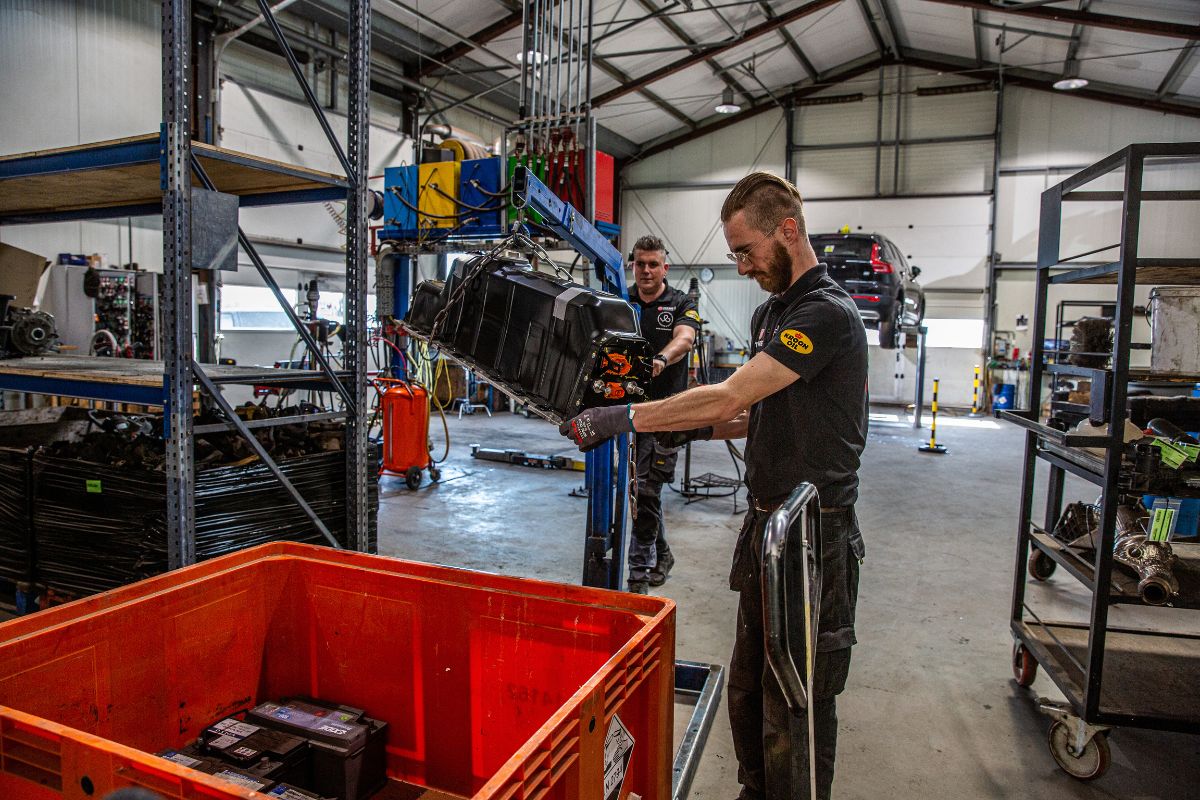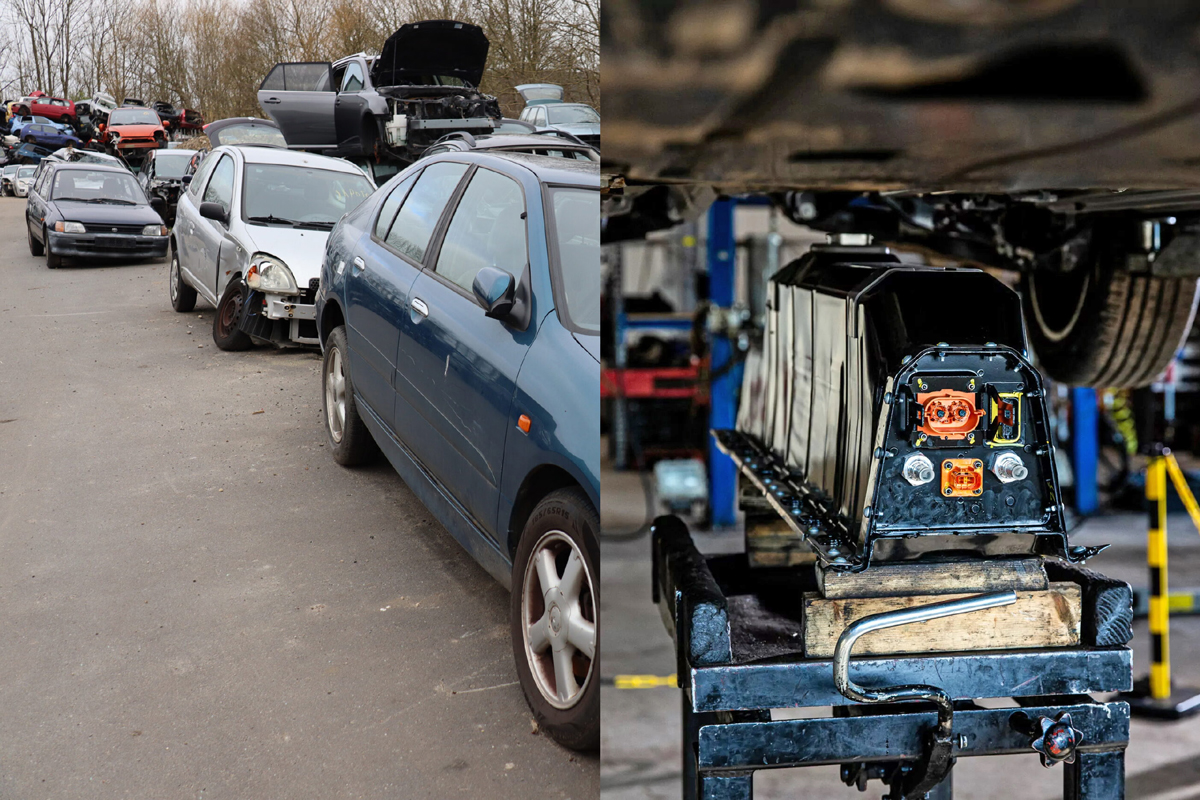Car glass does not always end up being recycled in the Netherlands This is despite the fact that it is possible to endlessly recycle glass without any loss of quality. “A missed opportunity”, according to the Maltha Group.
Tekst Arjen van der Sar
Fotografie Verse Beeldwaren
Maltha Glasrecycling, a subsidiary of Renewi, specialises in processing hollow glass, such as bottles, and flat glass, such as car windows and mirrors. To collect the glass, Maltha Glasrecycling works closely with collection companies and recycling programmes throughout Europe. The company recycles 1.4 million tons of glass waste each year into secondary raw materials for new products. We use an efficient processing line for this which has not yet reached its full capacity.
“Car glass is different to bottle glass”, explained Bianca Lambrechts, Manager Sales & Sourcing at the Maltha Group: “That’s because it usually contains a layer of foil. Furthermore, the glass sometimes contains metals and advanced windscreens are also fitted with electronics. In addition, car glass often has a green tint caused by the metals that are added to it in the furnace.”
‘Cleaner glass’
“Each year, the crushed recycled car glass, or cullet, that we supply to the glass industry is becoming ‘cleaner’. That’s because we have removed as many of the additional substances as possible from it. Our sorting machines drop the glass from a height, in a manner of speaking, and use compressed air to blast away opaque fragments such as small stones from the main flow. We are constantly making investments, such as those in better sorting machines that can automatically detect cullet based on its chemical composition and separate it from the flow. This is becoming faster and more accurate. We also need to do this, as it enables the ‘clean cullet’ used by our industrial buyers to better compete with primary raw materials.”
Purer and uniform
Supplying purer and above all uniform cullet that meets the specifications of the glass and glass wool industry, increases cullet sales. Lambrechts: “Car glass cullet is mainly used in the manufacture of beer bottles and glass wool.”
The glass industry is eager to buy cullet. This is due to the energy savings that industry can achieve when it uses ‘recycled’ glass as a raw material. “Every 10 per cent of cullet used by a manufacturer reduces its energy consumption by 2 to 3 per cent. More than 80 per cent of a green beer bottle is made up of recycled glass shards. Overall, this gives an energy saving of 25 per cent. And that is not to mention the reduction in carbon emissions. Furthermore, it increases the output of glass furnaces as cullet melts more rapidly and produces new glass more quickly than sand and soda-lime.”
Downcycling has become the standard
According to Lambrechts, car glass recycling is not always ideal in practice. Only a few dismantling companies in the Netherlands supply car glass for processing at Maltha. Most car glass in the Netherlands still ends up in the large residual waste flow, which is used for things such as a base material for road construction.
Old car glass is used as a base material for road construction, among other things.
Maltha would like to see this changed. “I understand that it needs to be financially viable”, stressed Lambrechts diplomatically, “but we would really like to have that glass and we have been talking to ARN about this for a long time. It is commercially interesting for us to supply it, but it is also good for car recycling in the Netherlands. After all, we can often endlessly recycle glass without any loss of quality. This is clearly different for paper and plastic flows. This makes glass a very sustainable and circular material. It’s a terrible shame that the car recycling industry does not supply this glass separately.”
Regulation
Apart from the cost factor, certain aspects of the regulations also play a role. Government rules stipulate that glass fully counts as part of the mineral residual fraction that remains after end-of-life cars have been shredded. In other words, there is hardly any incentive to keep the glass separate. If you do separate the glass, it means that you will incur costs which you may not recoup. At the same time, this is not reflected in your recycling percentage. The car dismantling company needs to be paid, and then there are also the extensive logistics involved with collection. Lambrechts: “I think it’s a missed opportunity. By collecting and processing the glass, we keep it within the chain.
In the current climate, the demand for cullet in the glass industry in greater than the supply
In the current climate, the demand for cullet in the glass industry is greater than the supply. According to Lambrechts, the relationship between new production and producing glass from cullet will only make recycling more attractive over the long term. This is basically because there will be a fall in the availability of suitable sand in future decades. Furthermore, if energy and CO2become more expensive in the future, as is commonly expected, recycling will become an increasingly attractive alternative over time.
The Hague in action
However, is it possible to think of an incentive over the shorter term that would give a boost to car glass recycling? Without hesitation, Lambrechts replied: “Yes, there certainly is, though the action must come from the government in The Hague. My message to the minister is the following – look at glass in a different way. A material that can be easily recycled should not disappear in road construction. Do not be content with keeping car glass as a part of the residual fraction. Remove the glass and make glass recycling a key objective. That is good for industry, car recycling, and car recycling companies such as ours, but it also clearly brings us a step closer to a circular economy.”





